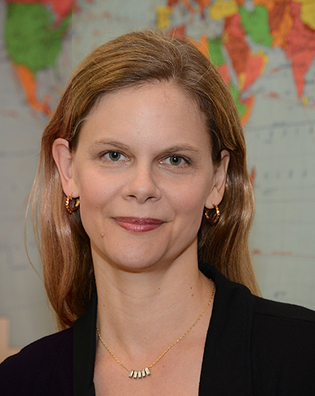 loading
loading
MilestonesA historian to lead Grand StrategyBeverly Gage ’94 is the new director of the well-known course.  Michael MarslandHistory professor Beverly Gage ’94 will be the new director of Yale’s popular Grand Strategy course. View full imageThe Brady-Johnson Program in Grand Strategy probably gets more outside press than any other course at Yale. But that’s not the reason history professor Beverly Gage ’94 is looking forward to her new post as its director. For Gage, the timing is the thing. With a Donald Trump presidency, she argues, what could be more essential than a program that studies effective leadership in a fast-changing world? “This is a dark and difficult moment in politics,” she says. “But it has also revived a sense of engagement. Big changes need to be made, and Grand Strategy explores how big change becomes possible.” Grand Strategy is a year-long course for both undergrads and graduate students, founded in 2000 by history professors John Lewis Gaddis and Paul Kennedy and former Foreign Service officer Charles Hill. It has “a different flavor and emphasis than the traditional academic class,” says Gage; as outgoing director Elizabeth H. Bradley ’96PhD has put it, the course is intended to train future decision makers to achieve “large ends with limited means.” Although GS came out of the study of history and is rooted in foreign affairs, statecraft, and government, Gage says the concepts that fuel GS could readily be applied to many other contemporary issues. “Part of Grand Strategy is stepping back and looking at the big picture—to think in big ways,” she says. “There are lots of other areas—domestic policy and social change—where those principles can be applied.” (Bradley, who is leaving Yale in July to become president of Vassar College, is a case in point: she is a professor in the School of Public Health.) Gage, a specialist in twentieth-century American political history who is writing a book about longtime FBI director J. Edgar Hoover, says that GS makes “a powerful claim to the usefulness of history as a tool for how to problem-solve.” She says she knows the weight of responsibility she’s assuming. “There are a lot more applications than we can accept,” she says. “Many people who have gone through the program talk about it as one of the more meaningful things they did at Yale.”
The comment period has expired.
|
|